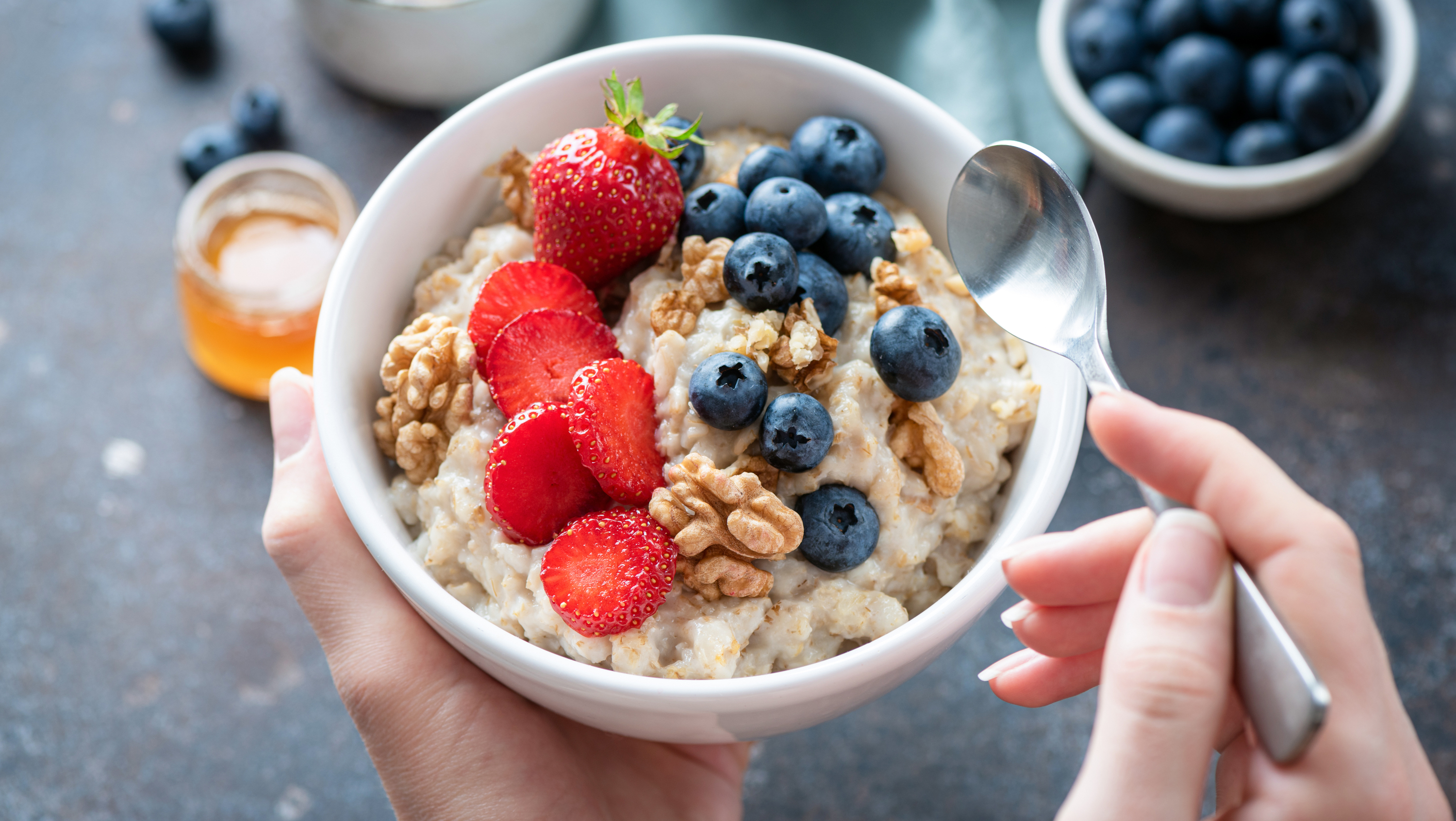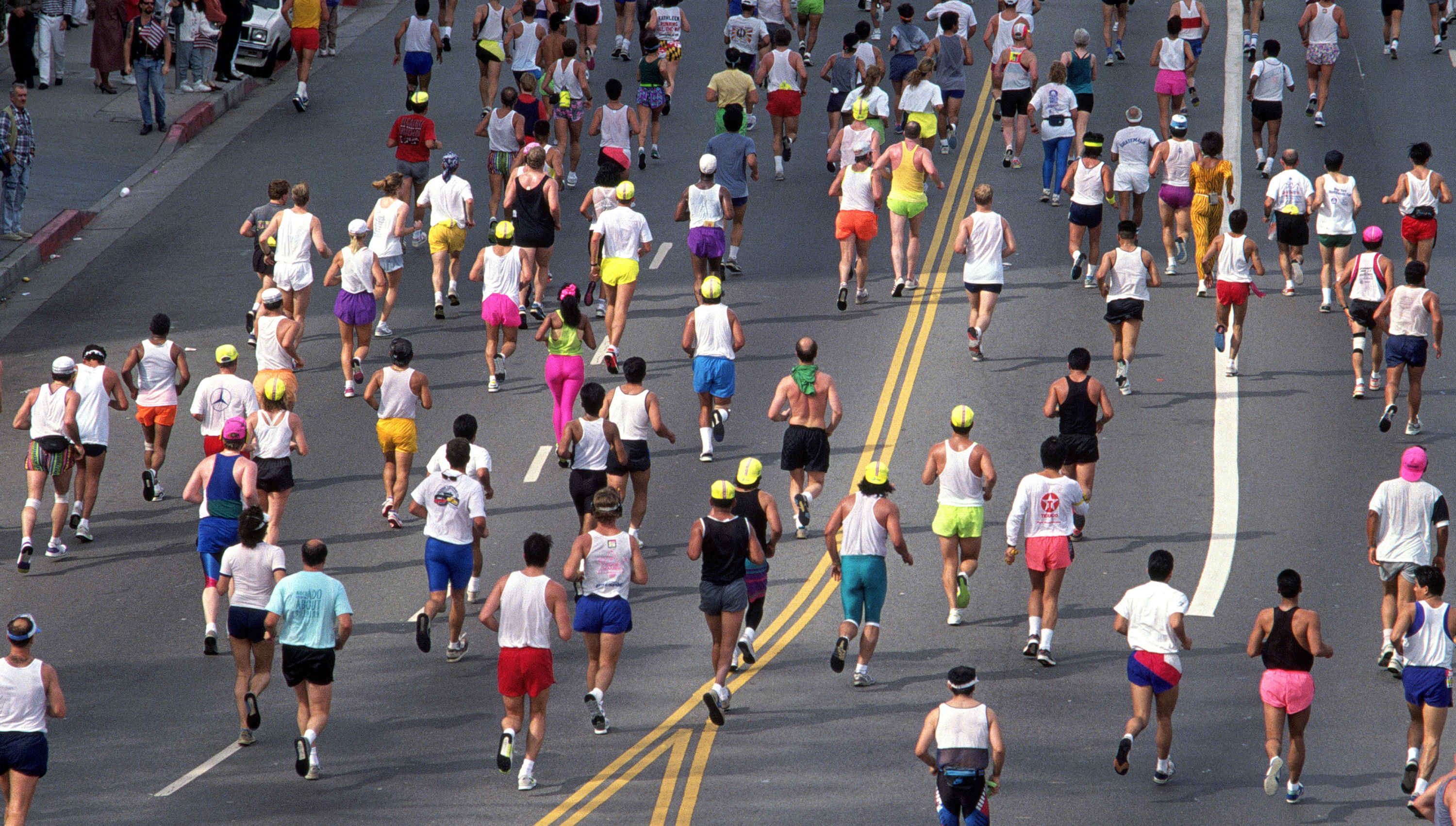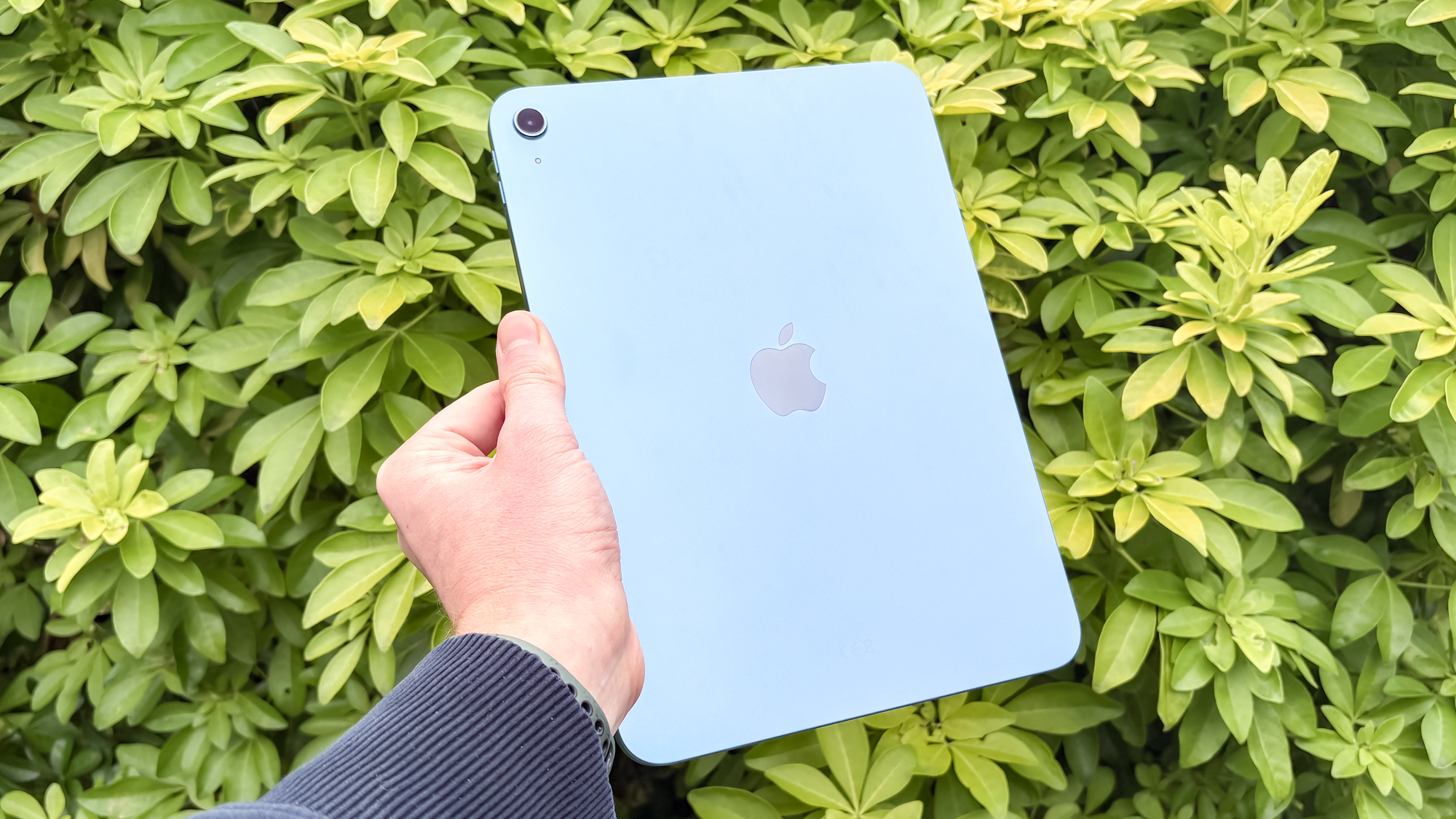5 things keeping me motivated during marathon training
5 important things getting me through marathon training

Here at Tom’s Guide our expert editors are committed to bringing you the best news, reviews and guides to help you stay informed and ahead of the curve!
You are now subscribed
Your newsletter sign-up was successful
Want to add more newsletters?

Daily (Mon-Sun)
Tom's Guide Daily
Sign up to get the latest updates on all of your favorite content! From cutting-edge tech news and the hottest streaming buzz to unbeatable deals on the best products and in-depth reviews, we’ve got you covered.

Weekly on Thursday
Tom's AI Guide
Be AI savvy with your weekly newsletter summing up all the biggest AI news you need to know. Plus, analysis from our AI editor and tips on how to use the latest AI tools!

Weekly on Friday
Tom's iGuide
Unlock the vast world of Apple news straight to your inbox. With coverage on everything from exciting product launches to essential software updates, this is your go-to source for the latest updates on all the best Apple content.

Weekly on Monday
Tom's Streaming Guide
Our weekly newsletter is expertly crafted to immerse you in the world of streaming. Stay updated on the latest releases and our top recommendations across your favorite streaming platforms.
Join the club
Get full access to premium articles, exclusive features and a growing list of member rewards.
Uttering the words "I’m running a marathon" is a recipe for gaining a lot of verbal kudos from others. Yes, speaking it into existence can be a good ego boost, but actually lacing up in a pair of the best running shoes and committing to the training for it is a whole other kettle of fish. Here are five things that are helping me stay motivated during my training, most of which I have learned through trial and error but have been pivotal for spurring me on.
According to RunRepeat, less than one percent of the U.S. population has completed a marathon. So, first of all, if you are about to start training for one or, are in the midst of training, give yourself a pat on the back. I for one, find motivation in becoming part of the small percentage of people who have finished a marathon.
Want to find some practical tips on maintaining motivation during marathon training? Grab your trainers, and see where these five tips get you below.
5 things keeping me motivated during marathon training
The great thing about signing up for a marathon is that there is an end goal in sight and something to work toward. But, the typical training duration required to run a marathon can be anything between 12 and 20 weeks, meaning it can be easy to give up or slack on your training. Here are seven ways you can avoid losing motivation…
1. Following a plan

Thinking about ditching a training plan and winging your prep for the marathon? Perhaps if you have run multiple marathons before and trust your experience, then you can rely on yourself to know what it will take to prepare your body for your next one. Or maybe you’re a run coach and have the skill set to create your own marathon plan. But for most people reading this, sourcing a plan that is tailored to your abilities and marathon goals is essential.
Working with a running coach is a great way to build confidence and have a reliable form of accountability ahead of a marathon and help you get closer to reaching a PB. However, this can be pricey and not an option for everyone. But this should not stop you from running a marathon and it certainly hasn’t stopped me in my tracks.
After having a very positive experience training for a half marathon last year using a platform called Runna— feel free to read our full Runna review or check it out in our guide to the best running apps—I can’t emphasize enough the value of investing in a detailed training plan tailored to you.
This particular app takes your time from a previous distance such as your 5K time or half marathon time, and finds out how often and how far you run on a weekly basis to curate a marathon training plan especially for you. It does have a monthly cost but equates to a fraction of what you would pay for a physical running coach and has professional running coaches on hand to answer any questions or issues you have, albeit virtually
Get instant access to breaking news, the hottest reviews, great deals and helpful tips.
There are also plenty of free marathon plans you can source online, just try and find one that is tailorable to you. Sometimes, certain marathon events will provide participants with a plan included in their race pack. For example, I am running the Adidas Manchester Marathon on April 14 and have received training plan options to choose from based on my experience. The bottom line is that a training plan provides structure, accountability and running advice which is crucial for maintaining momentum in your journey to completing a marathon.
2. Finding balance
Balance will look different for everyone but finding some form of it in your training will help you maintain a healthy mindset toward running. A marathon is a big commitment but you shouldn’t feel like it demands absolutely all of your time or energy.
Throughout my training, I am making sure to tick off all my runs and give my all to them but I am also keeping time aside to see friends, do activities I enjoy doing and making sure to properly rest during my downtime. The training part can also be fun, such as making your easy miles a slow and coversational parkrun with your friends. For anyone who hasn't been to one before, here's 9 things I wish I had known before my first parkrun.
If I get ill or struggle to fit in my runs while on holiday or other commitments come up, I don’t beat myself up. I tend to start training for a race a couple of weeks ahead of plan just in case anything does happen to set me back during the actual training period.
3. Running with others

Running with company is not only great for taking your mind off the miles, but it also is a great source of motivation. Seeing as marathon training takes up a fair chunk of your week, running alongside a friend or a group is a great way to stay social and tick off your training runs. This won’t necessarily work for all sessions, for example, it might be trickier to complete a speed season with a friend if they are either faster or slower than you. In this case, finding a local run club with different paced groups may be of use.
I am very fortunate to have a very supportive dad who insists on cycling alongside me when I go out running while staying with my parents. I find running next to someone on a bike helps me maintain a pace better and it spurs me on to push myself when there is someone else moving along with such ease. It’s a bit like following a pacer in an official running event, minus the added pressure that race day brings.
4. Managing my diet and rest

Regardless of whether or not you have a coach helping you toward a marathon, it’s down to you to manage your rest and nutrition. Getting enough sleep and rest periods will hugely impact your training. Running long distances or completing demanding sessions such as intervals demands a lot from your body. I have learned this the hard way from trying to run on little sleep and feeling the defeat of my body telling me to stop and rest.
The same goes for what foods you choose to fuel your body with during marathon training. I am not one to restrict myself from certain foods but I am more mindful of what meals I eat before a training session in order to feel my best and more motivated while I run.
Kerry Beeson, Nutritional Therapist at Prep Kitchen recommends prioritizing the following four food groups when training for a marathon: complex carbohydrates, fruit and vegetables, healthy fats and protein.
Complex carbohydrates metabolize slower than simple sugars do, meaning you have a better chance of sustaining energy without causing blood sugar to rise and fall. Beeson notes, “Depending on how often and how hard you’re training, aim for around 5-8g of carbs per kg of body weight per day.”
You will likely notice your hunger increasing during marathon training with all the miles you tick off. Protein is great for keeping you full and it plays a vital role in aiding muscle growth and repair. It also helps to produce enzymes which help with your body’s nutrient absorption.
Likewise, the more fruit and veggies you consume, the better. They provide vitamins and minerals for immune support and help boost your metabolism. Eat the rainbow is a great mantra to adopt, the brighter the fruit or vegetable the more antioxidants they tend to contain, such as beetroot and berries.
Additionally, “Healthy fats in foods like oily fish, olive oil, and avocado are also great to include as part of a runner's nutrition arsenal - they’re anti-inflammatory and can provide a sustained source of secondary energy, especially if running long distances,” says Beeson.
It’s also a good idea to experiment with different gels and ways of fuelling during your running so that you aren’t trying to figure this out on race day.
5) Visualizing race day

Remember why you started. It might get to a point in your training, where you are trying to complete a long run, everything hurts, your music playlist has been rinsed to its death, you can’t see the end in sight and just want to go home and curl up in a ball or hit the pub for a fresh pint. It’s in moments like this that I remind myself why I bothered turning up to run.
In a small study featured in the Journal of Imagery Research in Sport and Physical Activity, individuals who were not regular runners and embraced a functional imagery training routine, where they envisioned how it would feel to achieve their goal—demonstrated a fivefold increase in the likelihood of completing an ultramarathon compared to those who consulted with a counselor for motivation without incorporating visualization into their success strategy. Clearly, there is something to be said about keeping your eyes on the prize in order to keep spirits high.
More from Tom’s Guide
- 5 best kettlebell exercises for runners to build and strengthen the glutes, quads and hamstrings
- It only takes 6 exercises and 30 minutes to build strength with this bodyweight workout
- 9 things I wish I had known before my first parkrun

Jessica has been a fitness writer at Tom’s Guide since 2023, bringing three years of experience writing about health, fitness, and the great outdoors. Her passion for exercise began during her childhood, where she spent weekends hiking and competing in local athletics club events. After earning a master’s degree in journalism from Cardiff University, Jessica found the perfect way to combine her love of storytelling and fitness into a career.
Jessica is passionate about testing fitness gear and tech, using her reviews to help readers make informed buying decisions. She ran her first marathon in April 2024, finishing it in 3 hours and 48 minutes. Through her training, she’s developed a deep understanding of what it takes to grow as a runner, from effective workouts and recovery techniques to selecting the right gear for every challenge.
When she’s not at her desk, Jessica enjoys spending time in the kitchen crafting new recipes, braving cold water swims and hiking.
 Club Benefits
Club Benefits










